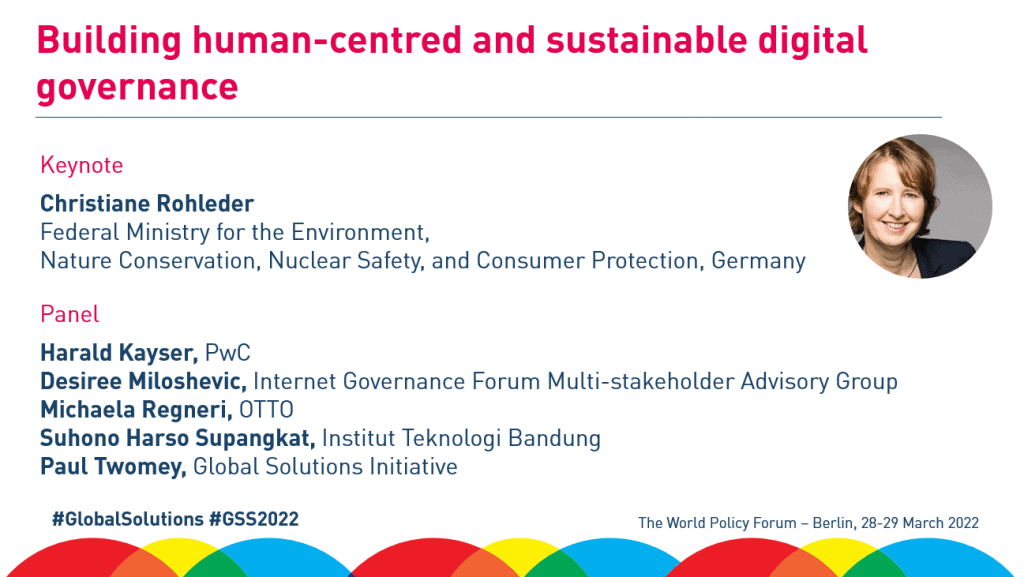Governance transformation
Summit 2022
Digital services have become an integral part of life for most of us. Although the digital revolution has unleashed new opportunities for economic, social and political exchange, there is a structural misalignment of interests between users and suppliers of digital services. Building on unprecedented network effects, and consequent rewards to first movers (especially those offering “free” services to maximise market penetration), many digital service providers have business models built on massive user surveillance, data aggregation, and manipulative, discriminatory software. This has fuelled a more than $465 billion market between data aggregators and entities seeking to influence users[1]The billions of individuals whose data is collected are not part of this market, rather they are induced into a state of digital serfdom through the offer of “free” services. The market mechanism between individuals, service providers and third-party funders (who buy and use individuals’ data from service providers) is broken.
The misalignment between digital consumers and third-party funders is responsible for a variety of malfunctions: (1) economically, as it threatens the functioning of our economic market systems, and exposes users to manipulation of attention and behaviour; (2) socially, as it erodes appreciation for objective notions of truth, undermines democratic processes, weakens mental health, threatens human rights, and degrades social cohesion; (3) environmentally, as energy-hungry data centres and processes like tracking and behavioural advertising run many more operations than required for fulfilling the users’ request, and (4) individually, as it threatens peoples freedom, privacy and consumer choice and exposes consumers, businesses and governments to cybersecurity threats.
While governments have sought to respond through a fundamental rights and consumer protection approach, and recently in the EU through the Data Act, they have yet to address the broken market mechanism in the relationship between the individuals, digital service providers and third-party funders. Further, the application of a “one size fits all” definition of personal data does not keep up with how data collection has expanded and changed through technological change.
Differentiating different types of personal data and strong anonymization techniques would allow the use of data commons and trusts for collective data that can serve many common uses for the public welfare, including approaches to mitigate climate change, while protecting official and privy data of consumers. This panel will discuss policy proposals that empower digital consumers while incentivizing innovation.
[1] Worldwide Digital Advertising in 2021, Statista: https://www.statista.com/outlook/dmo/digital-advertising/worldwide#global-comparison








